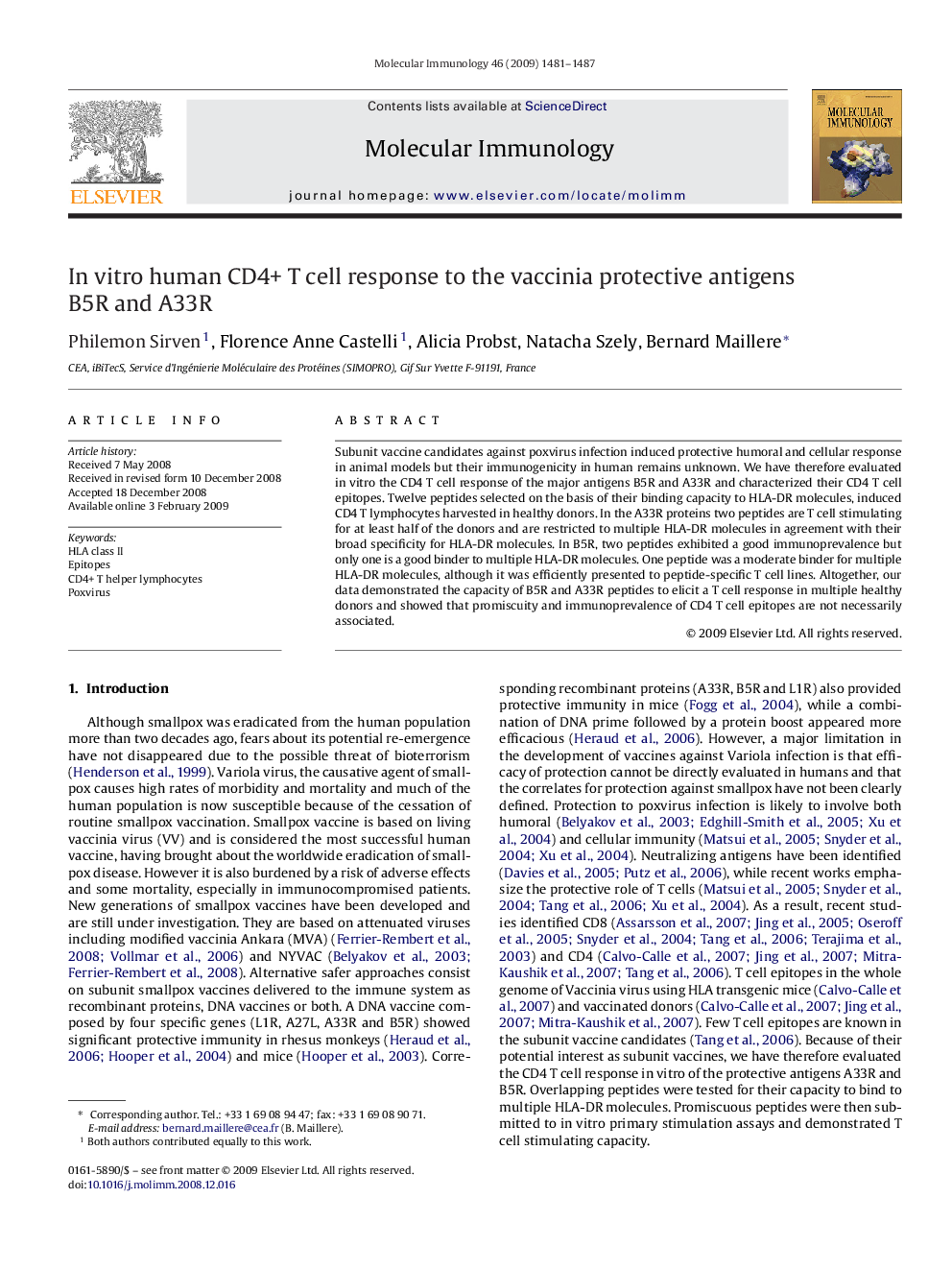| Article ID | Journal | Published Year | Pages | File Type |
|---|---|---|---|---|
| 5917906 | Molecular Immunology | 2009 | 7 Pages |
Abstract
Subunit vaccine candidates against poxvirus infection induced protective humoral and cellular response in animal models but their immunogenicity in human remains unknown. We have therefore evaluated in vitro the CD4 T cell response of the major antigens B5R and A33R and characterized their CD4 T cell epitopes. Twelve peptides selected on the basis of their binding capacity to HLA-DR molecules, induced CD4 T lymphocytes harvested in healthy donors. In the A33R proteins two peptides are T cell stimulating for at least half of the donors and are restricted to multiple HLA-DR molecules in agreement with their broad specificity for HLA-DR molecules. In B5R, two peptides exhibited a good immunoprevalence but only one is a good binder to multiple HLA-DR molecules. One peptide was a moderate binder for multiple HLA-DR molecules, although it was efficiently presented to peptide-specific T cell lines. Altogether, our data demonstrated the capacity of B5R and A33R peptides to elicit a T cell response in multiple healthy donors and showed that promiscuity and immunoprevalence of CD4 T cell epitopes are not necessarily associated.
Keywords
Related Topics
Life Sciences
Biochemistry, Genetics and Molecular Biology
Molecular Biology
Authors
Philemon Sirven, Florence Anne Castelli, Alicia Probst, Natacha Szely, Bernard Maillere,
